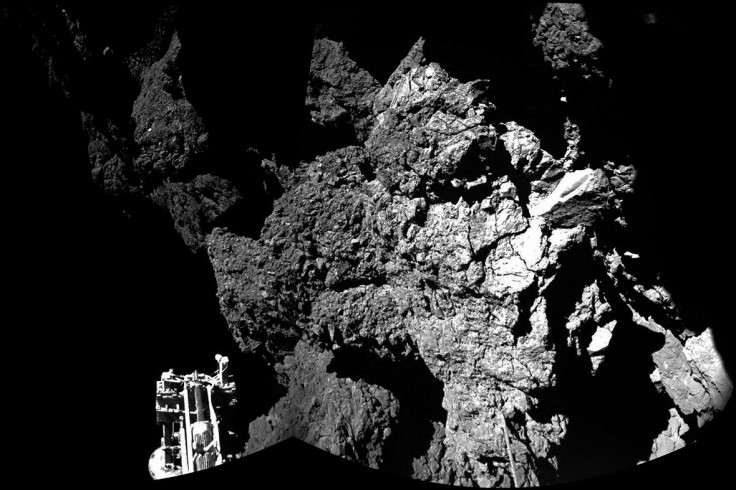Comets were not early Earth's water bearers says Rosetta analysis

Early results from Europe's Rosetta spacecraft eliminate comets as the source of Earth's water, as also of organic content.
The pendulum has swung back to asteroids probably having delivered water to early Earth.
Chemical analysis of water on Comet 67P/Churyumov-Gerasimenko by Rosetta's Rosina instrument shows thrice the deuterium content compared to water on Earth, said Kathrin Altwegg, University of Bern.
The hydrogen in water is made of two types of isotopes. While the most common type of hydrogen has one proton in the atom's nucleus, deuterium has a proton and a neutron.
Three years ago, analysis of water in another Kuiper Belt comet showed matching water chemical fingerprints. But the Rosetta measurements of 67P are so much higher that even a few comets of its type smashing into Earth should have changed the deuterium ratio on ground.
This finding now leaves asteroids as early Earth's probable water bearers, reports Reuters.
Early Earth was so hot that it couldn't have retained much water and lead scientists to believe most of the water was delivered by icy bodies that slammed into the planet 800 million years after the solar system was formed.
"Asteroids could well have had much more water than they have today," Altwegg said. "They have just lived in the vicinity of the sun for 4.6 billion years."
Water from carbonaceous chondrites, a form of asteroids has also been suggested as source of water on early Earth.
Confirmation of the asteroid theory will come in 2020 probably when Japan's Hayabusa 2 probe which plans to blast a crater on a carbon-rich asteroid called 1999 JU3 in 2018 will return to Earth with its samples, writes NBC News.
The Comet 67P hails from the Kuiper Belt region of the solar system, located beyond Neptune's orbit.
Studies on Halley 's Comet in 1986 by ESA's Giotto probe had detected D/H ratio that was about twice that of Earth's water, ruling out comets from the even further Oort Cloud as water bearers.
But with the Herschel probe studies in 2011 on Hartley 2 comet from the Kuiper belt the comet water hypothesis was revived after comparative water hydrogen ratios.
The search for Rosetta's comet lander Philae continues. It ran through a hectic two days of pre-programmed science experiments before its battery died.
Results of the studies, which include chemical analysis of samples drilled out from the comet's body, have not yet been released. Initial data seemed to suggest presence of organic compounds on 67P.
© Copyright IBTimes 2025. All rights reserved.





















